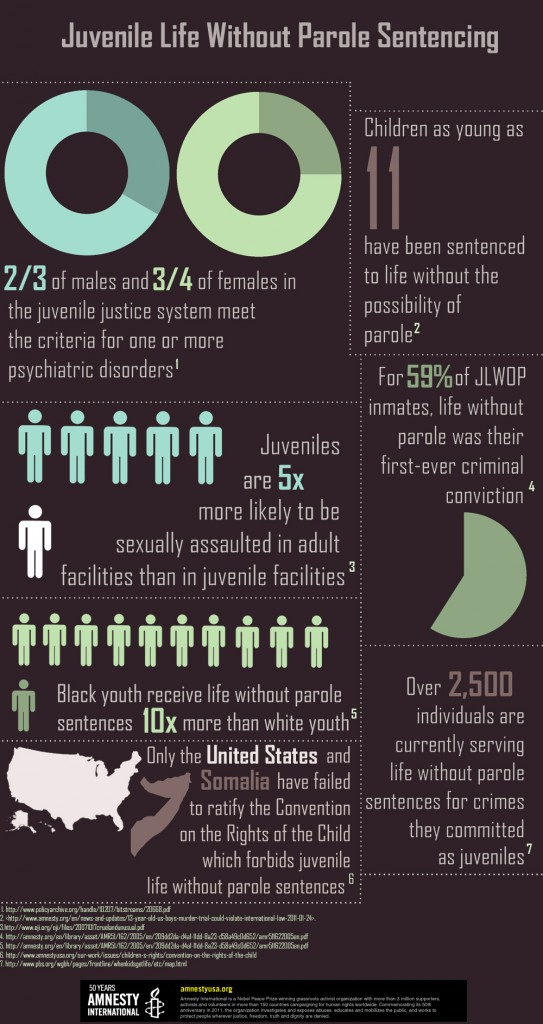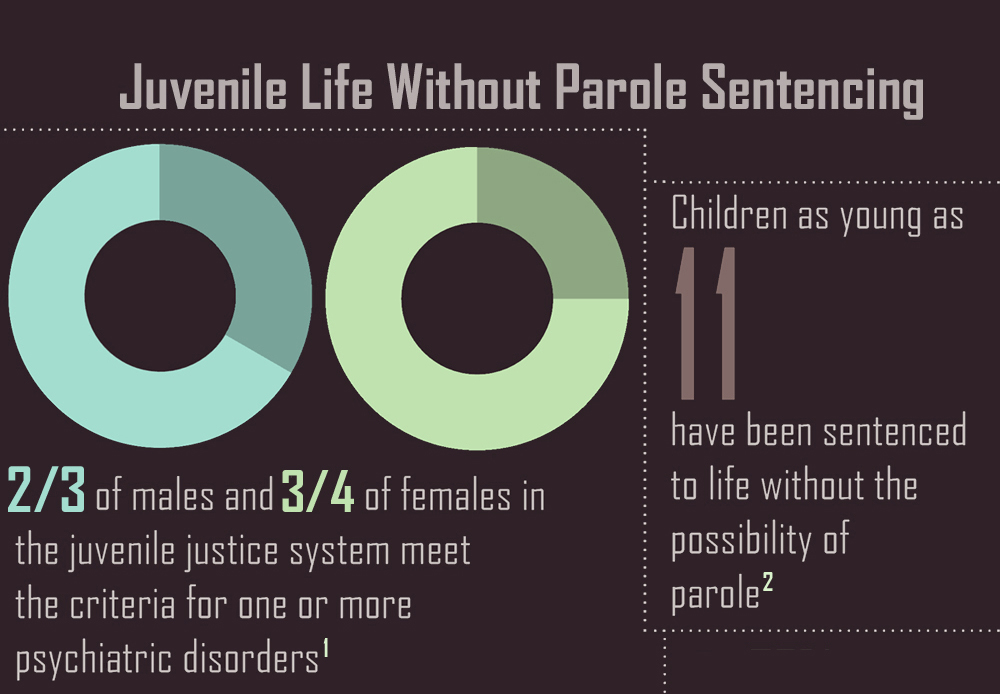Tuesday the Supreme Court will take up the issue of life sentences without parole (LWOP) for juveniles convicted of murder. In 2010, the nation’s high court ruled juvenile LWOP sentences were unconstitutional in non-homicide crimes. Now, advocates are hopeful the court will extend the same protection to all juveniles, regardless of the offense.
Pointing to research indicating that brains continue to develop into the early 20s, some groups, including the American Bar Association, argue juveniles are uniquely suited to rehabilitation and that a life sentence without the possibility of parole is a violation of the Eighth and 14th Amendments’ prohibition against cruel and unusual punishments.
Juvenile LWOP sentences are, in fact, very rare, especially for 14-year-olds, the age of both juveniles sentenced in the two cases before the court. Jennifer Jenkins, President of the National Organization for Victims of Juvenile Lifers, a group advocating on behalf of crime victims and their families, describes the cases as 'outliers' and says that's precisely why the justices should uphold the constitutionality of juvenile LWOP sentences. NOVJL submitted an amicus brief to the court reflecting that position.
"...[T]hese cases currently before the Supreme Court represent efforts by advocates for the offenders to go after the 'outliers' in this issue," Jenkins wrote in a statement to JJIE. "Ninety percent of all cases of juveniles tried and sentenced to natural life as adults for their exceptionally heinous crimes are 16 and 17-years-old."
But Randee Waldman, director of the Barton Juvenile Defender Clinic at Emory University School of Law, in Atlanta believes the sentence is cruel and unusual because of how rarely it is applied.
“There are very few 13 or 14-year-olds serving life without parole,” she said. “It’s disproportionately used. That’s why it is unusual.”
Human rights watchdogs are taking an international view of the issue because the United States is one of only two countries in the world, along with Somalia, that has not signed the United Nations’ Convention on the Rights of the Child that prohibits juvenile LWOP.
“At the most basic level the sentence of LWOP for those convicted under 18 years old… is clearly in violation of international law,” Elizabeth Calvin, Senior Advocate for Human Rights Watch and LWOP Coordinator, told JJIE in July 2011. “I think we’re at a point in time where the community doesn’t think over-incarceration is the way to go.”
Amnesty International USA is also seeking a ruling from the court striking down juvenile LWOP sentences. As part of their awareness campaign the group produced an infographic highlighting some of the demographics of juvenile LWOP sentencing.

Courtesy Amnesty International USA.
